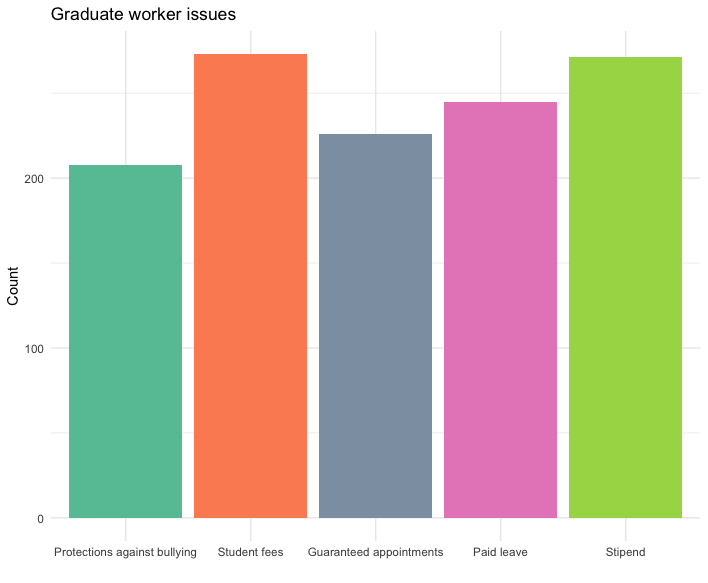Sign the Union Pledge

Where we are: In 2024, a District Court judge ruled large portions of Act 10 and Act 55, Scott Walker’s anti-union laws, unconstitutional. The ruling is stayed pending appeals, but the end of Act 10 and the restoration of full bargaining rights for public sector employees across Wisconsin—including graduate workers at UW Madison, is a very real possibility.
What we’re demanding from UW admin: If she wanted, Chancellor Mnookin could, tomorrow, institute a meet-and-confer relationship with us, where we meet regularly and come to agreements about how to improve conditions for grad workers. Governor Evers, the Associated Students of Madison (UW-Madison’s student government) and hundreds of grad workers have joined the call for UW admin to meet with our union regularly.
If and when our bargaining rights are recognized by state law, graduate students will be able to compel UW admin to meet with us and develop a collective bargaining agreement governing our rights and benefits as workers.
What we’re asking of you: Sign the pledge below to:
- Demand that Chancellor Mnookin institute a regular meet-and-confer relationship with the TAA now, and
- Commit to signing a union card the first step in certifying our union and bringing admin to the table, as soon as our bargaining rights are restored
Current vote tally (07.16.25): 389 grad workers support regular meetings with the Chancellor.
Join us in telling the UW Regents to support meet-and-confer
Not a grad worker? Join more than 700 faculty, staff, and community members and sign our solidarity petition in support of meet & confer
What is “meet and confer”?
“Meet and confer” entails regular negotiating meetings between the union and UW-Madison administration. These meetings are legal under Wisconsin law, and would give the union an opportunity to bring and discuss demands.
Why do we need Meet and Confer?
The UW system faces a dire fiscal reality. In spite of the state’s record surplus of $4 billion, the system is seeing furloughs, layoffs, and program cuts. Our union needs a voice in how resources are allocated on campus, especially when those decisions impact our working conditions.
What about Shared Governance/ASM?
Shared governance and ASM play an important role in addressing our needs as students such as curricular matters, student rights and services, and other academic issues. In contrast, our union is devoted to advancing the needs of grads as workers. If shared governance alone was enough, then we would already have paid medical leave, fee remission, and a living wage; but we don’t.
